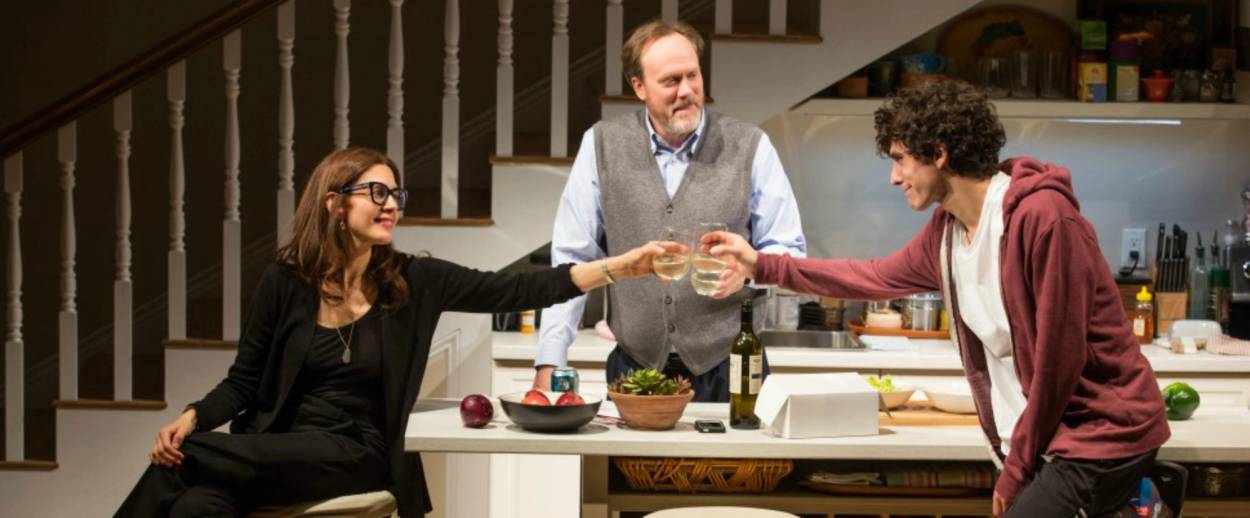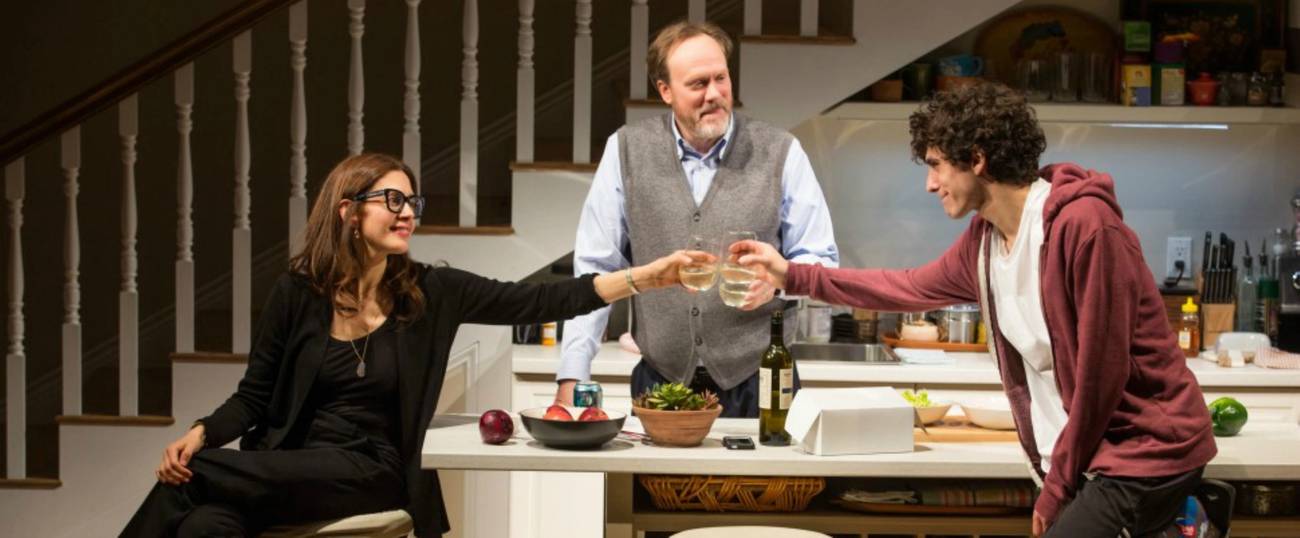A New Play Asks an Explosive Question: Just What Does Privilege Mean?
I thought ‘Admissions’ was a comedy, while my husband was sure it was a drama




This morning, I read a piece in the Milwaukee Journal-Sentinal, the newspaper of my husband’s youth, about the Oconomowoc school district banning “activities around the topic of privilege.” Apparently, after a Martin Luther King Day program in which students took the National Civil Rights Museum’s “Privilege Aptitude Test,” (which looks at attitudes about race as well as gender, class and physical ability) some parents in the predominantly white community were furious. But forbidding talk of privilege “doesn’t mean we can’t teach children about diversity with the other 900 ways we can approach it,” noted the Oconomowoc Superintendent. (He did not state what the other 900 ways are.) Meanwhile, a white lesbian foster mom of two biracial children started a petition, which now has nearly 1500 signatures, protesting that a local conservative radio personality had whipped parents into a froth and in fact, a “silent majority” of parents supported the assembly.
All the way in New York City, I hear the vigorous eye-rolling of both the left and the right. (It sounds kind of like sloshing.) And it makes Admissions, the new play at Lincoln Center Theater by Joshua Harmon (Bad Jews) about privilege, seem even more resonant.
The play is about the kind of self-satisfied, comfortable, self-congratulatory white liberals who go to plays at Lincoln Center. It’s about a white family at Hillcrest, a fancy but not quite top-tier private school in New England. Sherri (Jessica Hecht) is the head of admissions. She’s worked hard during her tenure to diversify the school, which has gone from three percent non-white to 18 percent. Her husband Bill (Andrew Garman) is head of school. Their son Charlie (Ben Edelman), a senior, has wanted to go to Yale since he saw the movie Mystic Pizza as a little kid. Charlie (whose middle name is Luther, because of course it is) and his best friend and basketball teammate Perry have both applied…but Perry has gotten in and Charlie has been waitlisted. Perry is biracial. And thereby hangs a tale.
Charlie is dramatically, loudly aggrieved. He’s taken one more AP class than Perry! He’s actually a better basketball player! And the only reason he isn’t the editor of the school paper is that the paper had never had a female editor so the advisor chose Olive Opatovsky instead of Charlie even though Olive’s op-eds suck! He has a huge, horrifying, hilarious monologue—which LaGuardia High School admissions officers will soon be sick to death of hearing from 8th graders—about exactly what privilege means. If you’re from Latin America but you’re the descendent of colonizers, are you disadvantaged? (“Cristobal!” Charlie screams, thinking about one of his wealthy classmates, “YOU’RE WHITE TOO!”) His mother’s cousins died in Auschwitz, Charlie says, but somehow the grandchildren of the Nazis who killed them and then fled to Argentina are viewed as less privileged than he is? Are Kardashians white, because they’re part Armenian…but does Armenia even count as Asia? Is Penelope Cruz white even though her native language is Spanish? “If all people from Spain are of color, then why not French people?” Charlie screams. “Or Italian people! They’re all right there on the Mediterranean! What’s so special about Spain?”
The night I was in the audience, there were shocked, percussive laughs throughout this long aria of resentment. After Ben Edelman finished, there were a couple of seconds of silence, then applause. It felt as though the audience wasn’t sure whether to clap. The performance was astounding, but the level of resentment depicted was horrifying. Then again, did everyone think so? Am I projecting? Ben is, after all, correct when he says, “You can’t just keep pulling up chairs! There isn’t unlimited room. That’s like, not how tables work.” This is true. And it’s the central issue of the play.
Bill is horrified by his son’s sense of entitlement. “For shame!” he tells him. How dare Charlie invoke Auschwitz when he’s only a quarter Jewish and has never been raised with any Jewish identity at all? He’s a healthy, wealthy white boy who’ll be fine no matter where he goes to college! But Sherri’s trumpeting of diversity crumbles when her beloved only son doesn’t get his heart’s desire. Life turns out differently for people who go to Ivy League schools, she notes, as opposed to places like Bucknell. (The way Hecht manages to simultaneously spit and drawl the word “Bucknell” is a marvel.) Her abandonment of her principles in a near-feral need to protect her son—she sees it as protecting him, anyway—is breathtaking.
There are two other characters in the play: Roberta (Ann McDonough), an elderly preppy stalwart whose family has attended Hillcrest for generations and who insists “I don’t see color”; and Ginnie (Sally Murphy), Perry’s baby-bangs-sporting white mom. Both seem like cartoons at first—Roberta an elderly, patrician relic; Ginnie the kind of white lady who revels in her wokeness and wails theatrically, “Ugh, this place is so white!” Both characters, it turns out, are more nuanced than they initially seem. Harmon does a great job of capitalizing on our own snap judgments.
Perhaps you’ve noticed: The cast of Admissions is 100 percent white. (Ocomowoc is only 96 percent white.) This play, performed for Oconomoc-diverse audiences, is about what white people say when there are no people of color in the room. It would feel way less hermetic if we actually got to know Perry. But what it’s about is who white liberals are behind closed doors. This is ballsy. And still manages to surprise: My husband (white) and I (white) had totally different interpretations of a shocking development toward the end of the play that I won’t spoil. (Email me after you’ve seen it.) And I thought the play was a comedy; he thought it was a drama. Lincoln Center calls it “convulsive,” which I guess could go either way. “Admissions,” after all, means two things: Getting in somewhere and acknowledging something.
Marjorie Ingall is a former columnist for Tablet, the author of Mamaleh Knows Best, and a frequent contributor to the New York Times Book Review.